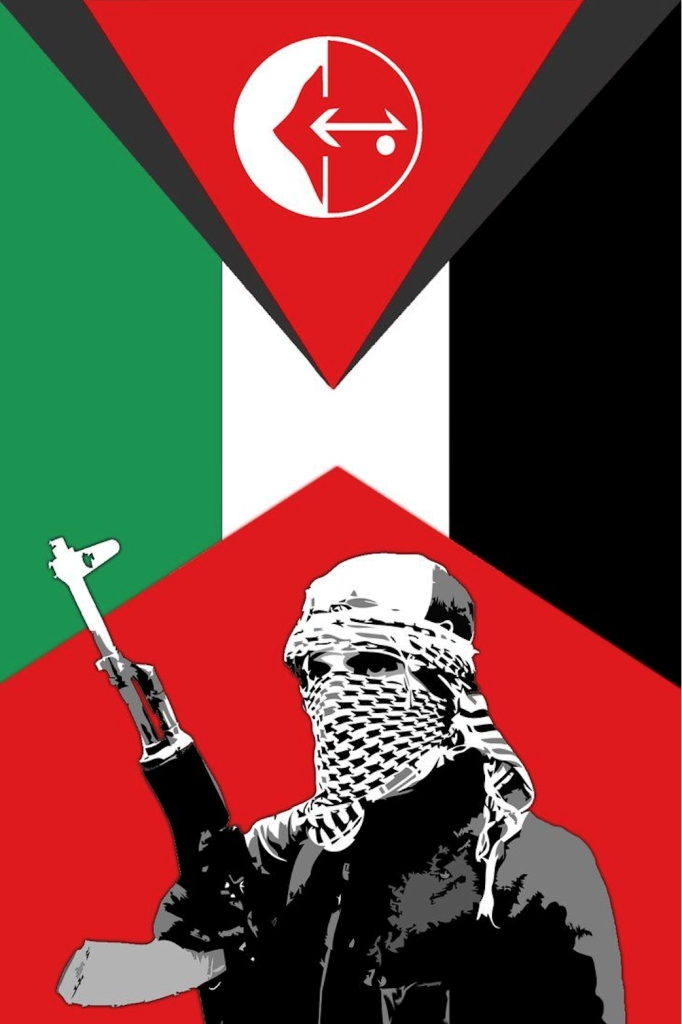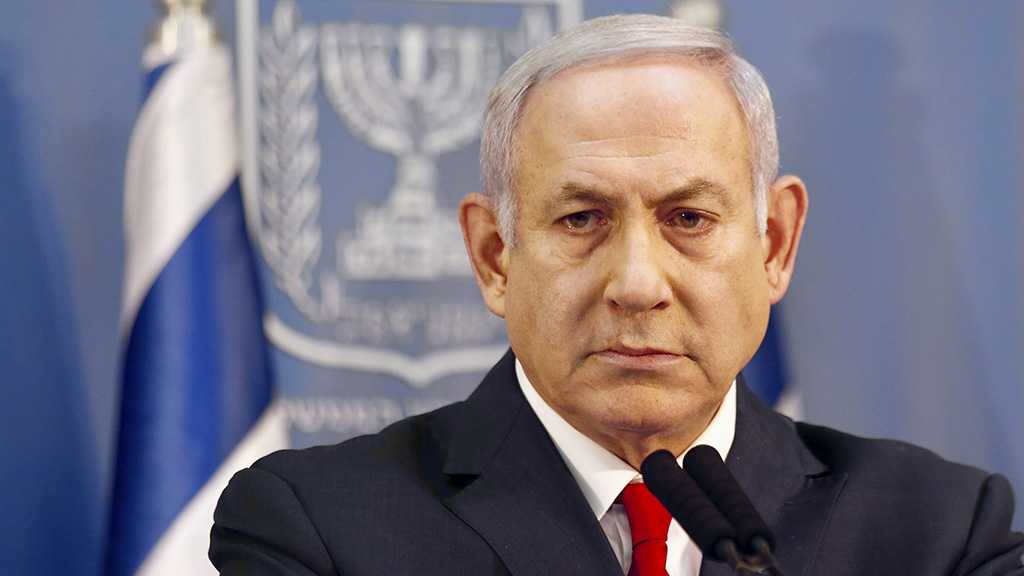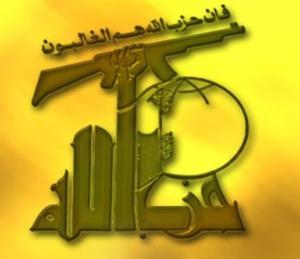“Operation Avenging the Free” has marked another episode in the progression of the Resistance’s military capabilities, this article will examine the historical context and the evolution of Palestinian rocket capabilities and specific innovations which have titled the balance of power in favor of Gaza.
The far-right government of Benjamin Netanyahu embarked on a five-day aggression on the Gaza Strip on May 9 as it utilized its security apparatus to complete an assassination campaign against leaders of the Palestinian Resistance.
This came in an attempt to save face amid recurring and increasing security breaches in the West Bank and occupied Al-Quds, which has raised questions regarding the ability of successive Israeli governments to limit the progression of Resistance in the spatially separated occupied Palestinian territories. In response, the Resistance’s Joint Operations Room (JOR) — which coordinates the military and security activities of the Resistance groups — announced “Operation Avenging the Free” in retaliation to the murder of three leaders.
This operation saw the Al-Quds Brigades take a leading role in pivotal missions that were supplemented by the active role of the Palestinian Front for the Liberation of Palestine (PFLP), the Democratic Front for the Liberation of Palestine (DFLP), and Al Nasser Salah Al-Din Brigades, as well as intelligence and infrastructural coordination from the Qassam Brigades, along with contributions from other groups within the JOR.
In this battle, the Palestinian Resistance showed exemplary production capabilities, evident in the rejuvenation of its locally-produced rocket arsenal, while maintaining the capacity to expand and refine its weapon choices, which both the armed Brigades and Israeli media spoke of. The JOR, specifically the armed brigades of the PIJ, had last engaged in a battle in August 2022 which witnessed the firing of 1000+ rockets, not to mention the extended confrontations of May 2021 in which barrages of rockets hit targets all over occupied Palestine. In that battle, the Resistance halted all air navigation over the occupied territories after the launching of the Ayash-250 rocket. Thus, the besieged Gaza Strip succeeded in showcasing its innovative production and engineering capacities, since the process of restocking ammunition has become dependent on recycling and repurposing materials to serve the Palestinian people’s fight for freedom.
A brief history of the struggle
An appreciation of the military expertise that the Resistance accumulated in Gaza cannot be fully grasped before looking into the material history of its progression, specifically in the field of rocket manufacturing and engineering.
Footage dated in 2005 from a field trip with leaders of the Al-Quds Brigade showed off part of the group’s training and their rocket launching capabilities. When compared to the barrages of rockets launched in every successive battle since 2014, the PIJ’s capabilities seem amateurish at best, as the chief tactics utilized to achieve tangible objectives at the time were “Martyrdom Operations” where fighters of the Brigades would risk their lives in pre-planned attacks on positions of the occupying forces.
In the early 2000s, video footage emerged of fighters exiting a banged-up panel van as they placed rockets on makeshift launchpads to be fired in an unknown direction. The early stages of rocket production showed, quite clearly, how underdeveloped the weapons were, as the spiraling trails of smoke showed the inefficient trajectory of the rockets cutting through the air.
Guidance fins on early rockets were placed parallel to the rocket head itself, which cut the payload’s range substantially— fins are supposed to guide the projectile into a roll, which allows it to cut through the air more easily — slight improvements such as changing the position of the fins, and calibrating the weight of the rockets culminated in 2014 when the Resistance was able to showcase its military capabilities and deter the aggression on Gaza. Successive Israeli governments attempted to thwart the inevitable rise of the Resistance, as fighters in Gaza looked to improve their military means by building on the progress achieved by martyrs, the accumulated expertise of other liberation movements, and the perseverance of Palestinian youth born into the besieged Strip.
Historically, Israelis sought to eliminate leaders, engineers, highly-skilled fighters, and production and launching facilities. However, rocket launching capabilities have seen consistent progression, as the last day of “Operation Avenging the Free” highlighted the effectiveness of the Al-Quds Brigades’ rocket launching tactics. The Brigades told Al Mayadeen English that they alone launched around 1,500 rockets and shells that targeted Israeli cities, the Gaza envelope, and the depth of the Zionist entity, in addition to military sites, airstrips, and artillery emplacements. The enemy admitted to the fact that Resistance rockets struck several sites and cities in occupied Palestine.
Siege on Gaza
After the liberation of Gaza in 2005, the Resistance achieved a wider margin of freedom in weapon production and the organization of its operations, which was previously of utmost difficulty due to the direct occupation of the strip and the presence of Israeli forces.
In an attempt to limit the progression of Resistance in the Strip, the occupation sought to implement severe unilateral sanctions that manifested themselves in the complete besiegement and blockade of all routes of entry to Gaza. The policy was a comprehensive plan to first, create a state of collective suffering within the Strip aimed at pushing Palestinians to let go of their pursuit of freedom — a tactic which has been deployed by Imperialists and colonialists powers en masse in the global south — and an attempt to halt the military activities of the armed wings.
Evidently, this policy did not achieve its goals, as the Resistance made great leaps forward, developing military instruments and strategies that ensured further victories for the Palestinian people, breaking through the facade of the “invincibility” of the Israeli army which succumbed to the demands of the Resistance — be it in Lebanon or Palestine — on various occasions.
An Israeli “security” frenzy after the Resistance forced its troops out of Gaza in 2005 and 2006 was supplemented by severe sanctions on the strip in 2007 and a naval blockade in 2009 which prohibited the entry of any vessel into Gaza’s waters, be it allied with the Resistance or neutral.
In 2010 Netanyahu’s government announced the criteria utilized in enacting this policy, which has been described by critics as arbitrary, listing materials that could be used for military purposes as prohibited from entering the Strip, including what was described to be dual-use equipment which could be employed in civilian and military use such as sanitation equipment and cement.
“Israel”, an occupying force and the world’s last colonial project, justified its collective punishment of Palestinians under the guise of preventing the Resistance from achieving a military advantage. However, after 16 years of sanctions on Gaza ”Israel” has only restricted civilian life in the Strip and imposed suffering on its people, yet still failing to maintain a military advantage; in fact, the IOF continues to suffer massive blows on the field as the Resistance continues to expand its arsenal, regardless of the siege.
Local Production
Israeli fixation over the complete deprivation of the Palestinian people of their means to sustenance and resistance has led to the innovation of groundbreaking military tactics and weapons development.
Traditionally, armed forces usually depend on either producing their weapons through complex military facilities or importing technologies and arms from states who have already pinned down that process. In Gaza the possibility of both is quite impossible, especially after “Israel” strengthened its intelligence and military alliances in the Red Sea and the Mediterranean to entrench its security apparatus within the Arab world’s waters post-2013.
Gazan fighters have now been accustomed to uncustomary practices, evident in their consistent pursuit to fortify their defensive capabilities. In the early 2000s, a period that coincided with the direct occupation of the Strip, engineers of the Qassam Brigades went to unfathomable extents to source explosive materials. Word of mouth in Gaza says that chemical engineers of the Brigades extracted nitrates from dove defecate by boiling down kilograms of it to produce small amounts of raw materials used in rocket manufacturing. These circumstances did not hinder the diligent work of resistance fighters and leaders, who made a remarkable shift in their tactics to co-opt rocket technology into local production facilities.
The Islamic Republic of Iran has been a key ally for Palestinian Resistance and has previously supplied Resistance fighters with Fajr 3 and Fajr 5 rockets. Although Iranian-supplied weapons were of great aid to the Resistance in its temporal battles with “Israel”, the real benefit lies within studying the process, geometries, and design that constitutes these rockets. The knowledge shared between different poles of the Axis of Resistance has led to an overall reality where the JOR achieved independence in terms of the production of its military capabilities. Currently, it could be argued that the overwhelming majority of rockets launched toward settlements and occupied territories are produced in Gaza itself, in the workshops of the different groups of the JOR.
Increased precision
Through sharing knowledge and expertise, the Al-Quds Brigade was able to decrease its dependence on imported/smuggled weapon systems that gave it strategic advantages on the battlefield.
It slowly shifted the balance of power by developing and manufacturing several lines of rockets and other explosive projectiles. On the second day of confrontations, the Al-Quds Brigades published a video revealing the features of the Boraq 85 rocket, which boasts a range of 85 km that is capable of effectively targeting “Tel Aviv” and settlements in similar proximity from firing positions in the Strip. The rocket holds a warhead of 40 kg and was put into use in 2019.
Although Boraq’s warhead is much smaller than that of the Fajr rockets, it can be considered an alternative, as it targets enemy positions in similar ranges and precision. In addition, its production is much more feasible, as it is produced from locally-available materials and technologies.
Even though the Fajr line of rockets allowed Gazans to expand the scope of confrontation with Israelis at a crucial period, the locally-produced Boraq rockets, in their different iterations, highlighted the Resistance’s diminishing dependency on imported weapon systems.
The Resistance has also developed the Badr line of rockets, which harnesses larger explosive warheads that have been estimated at around 200 kg, in addition to the warhead’s tendency to fragment into a multitude of shrapnels, according to Israeli media.
The Ayyash 250 rocket, which was first launched in the battle of the Seif Al-Quds back in May 2021 also showcased the Resistance’s abilities to develop weapons that cover the entirety of occupied Palestinian territory.
Yehya Al-Sinwar, Hamas’s current leader in the Gaza Strip stated after Seif Al-Quds, “The Resistance has now covered an area that stretches from Naqoura, north of Palestine to ‘Eilat’ in the south.” These breakthroughs bear witness to the continuous progress seen in the Strip’s engineering capabilities. The diligent work of the Resistance members in Gaza has produced a steady development of multiple lines of rockets, from inaccurate objects traveling targeting nearby envelope settlements to well-made accurate weapons that have inflicted substantial damage upon their targets.
The work of Resistance fighters has been undoubtedly affected by the sanctions imposed on Gaza. However, the Israeli policy pushed the Resistance into a precarious position, and as it traversed through these peculiar material conditions its general principles of operation were molded and solidified.
The Al-Quds Brigades told Al Mayadeen English, “We work under severe circumstances that only Allah knows about. Rebuilding and resupplying our military arsenal, specifically our rocket fire, requires substantial efforts that center around recycling, sourcing, and transporting equipment. Regardless of the difficulty of working conditions, the besiegement of Gaza, and continuous aggression, we have been able, as we have shown in every round of confrontation, to restore our military capabilities and replace the rockets launched as we defend our people.”
Jenin the rising star of the occupied West Bank
“The work of the Palestinian Resistance and Al-Quds Brigades is completely unattached to individuals or leaders, as its functions are based on an integrated system that works towards pre-set strategic goals that center around Palestine’s complete liberation. The leaders who were martyred founded the principles which allow us to say that the Resistance is determined and resolute, and its search for freedom cannot be stopped. The Israeli occupation should await the promised day when masses from the resistance and all the free people from every corner of the world will enter occupied Palestine.”
The work of the Al-Quds Brigades and its blueprint for military progression under severe circumstances has now been implemented in the occupied West Bank, with Jenin and its refugee camp taking a leading role in today’s Palestinian Resistance. On June 19, the first signs of an effective defensive strategy began to emerge. This was exemplified by the locally-produced highly explosive devices that dealt a heavy blow to intruding “Israeli Border Police” personnel and armored vehicles. These weapons were introduced for the first time in the West Bank, showcasing the fruitful outcomes of the secretive work carried out by the Axis of Resistance in general, and the Al-Quds Brigades specifically.
While the geography, governance, and social fabric of the Gaza Strip differ greatly from those of the West Bank, the larger picture remains unchanged: the constant advancement of Resistance capabilities amid Israeli security failures.
Related Stories
- Gaza rises to victory by smashing Israeli diktats into smithereens
- ‘Avenging the Free’ dealt mighty blow to ‘Israel’s’ division attempts
- Masses express appreciation, loyalty in Avenging the Free festival
Filed under: "Israel" | Tagged: Al-Aqsa Martyrs' Brsigade, Al-Qassam Brigades, Besieged Gaza Strip., DFLP, Israeli Occupation, Jenin Brigade, Martyrdom operations, Operation “Revenge of the Free”, Palestinian Islamic Jihad Movement (PIJ), Palestinian Resistance factions, Palestinian Resistance Joint Operations Room, Popular Front for the Liberation of Palestine PFLP, Precision missiles, Yahya Sinwar | Comments Off on Rocket production in Gaza: A history of innovation and perseverance











































 Defense Minister Matan Vilnai told Israeli public radio.
Defense Minister Matan Vilnai told Israeli public radio.













